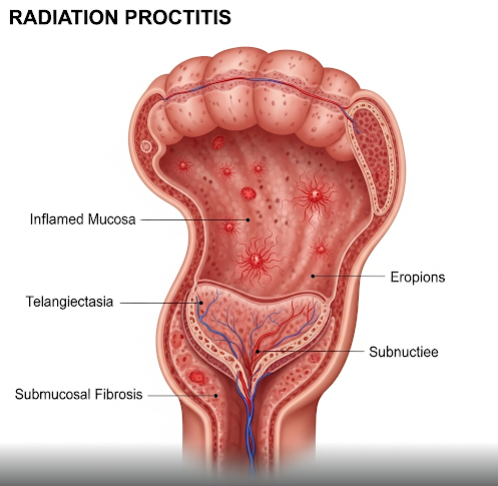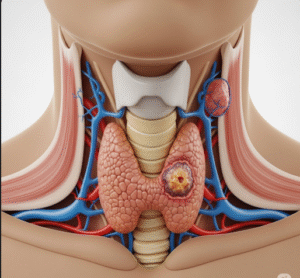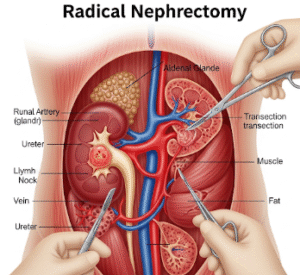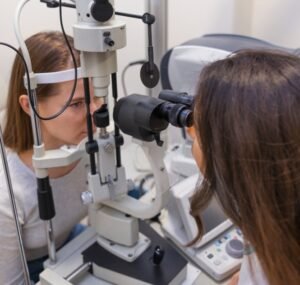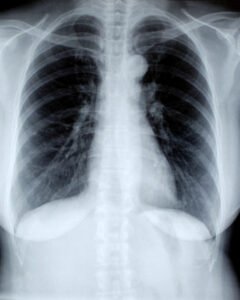Overview
Radiation proctitis is inflammation and damage to the rectal lining caused by radiation therapy, usually given for pelvic cancers such as prostate, cervical, rectal, or bladder cancer. It can occur during treatment (acute) or months to years later (chronic). Symptoms range from mild discomfort to severe bleeding and ulceration. In Korea, advanced radiation oncology centers use precision targeting to minimize rectal exposure and offer specialized treatments to manage and heal radiation-induced rectal injuries.
What is Radiation Proctitis?
Radiation proctitis occurs when high-energy radiation damages the delicate lining of the rectum, leading to inflammation, reduced blood supply, and sometimes scarring.
- Acute radiation proctitis – develops during or shortly after treatment, often temporary.
- Chronic radiation proctitis – appears months or years later, can be persistent, and may require advanced medical or surgical care.
Symptoms
- Rectal pain or discomfort
- Frequent urge to have a bowel movement (tenesmus)
- Diarrhea or loose stools
- Blood in stools (bright red or mixed with stool)
- Mucus discharge from the rectum
- Anal irritation or burning sensation
- Fecal incontinence in severe cases
Causes
Radiation proctitis is caused by unintentional radiation injury to the rectal mucosa during pelvic cancer treatment, leading to:
- Inflammation and swelling
- Damage to small blood vessels (telangiectasia)
- Formation of ulcers or scar tissue
Risk Factors
- Higher radiation doses to the pelvic area
- Large radiation treatment fields
- Combined chemotherapy and radiation
- Pre-existing inflammatory bowel disease
- Older age
- Diabetes or vascular disease
Complications
- Severe rectal bleeding (hemorrhagic proctitis)
- Chronic ulceration
- Rectal strictures or narrowing
- Fistula formation (abnormal openings to nearby organs)
- Persistent fecal incontinence
Prevention
- Using advanced precision methods such as IMRT (Intensity-Modulated Radiation Therapy) or proton therapy in Korea
- Inserting a rectal spacer during treatment to physically protect the rectum
- Regular hydration and bowel care during therapy
- Promptly addressing any rectal discomfort or bleeding
Treatment Options in Korea
Diagnosis
Specialists in Korea diagnose radiation proctitis using colonoscopy, sigmoidoscopy, biopsy, and imaging to assess the severity and rule out cancer recurrence.
Medical Treatments
- Anti-inflammatory suppositories or enemas (mesalamine, corticosteroids)
- Stool softeners to reduce straining
- Antibiotics for secondary infections
- Sucralfate enemas to promote mucosal healing
Surgical or Advanced Therapies
- Endoscopic cauterization or argon plasma coagulation (APC) for bleeding vessels
- Laser therapy for telangiectasia
- Surgery for severe strictures or fistulas
Rehabilitation and Support
- Dietary adjustments to avoid rectal irritation
- Pelvic floor physiotherapy for incontinence
- Long-term follow-up to prevent recurrence

